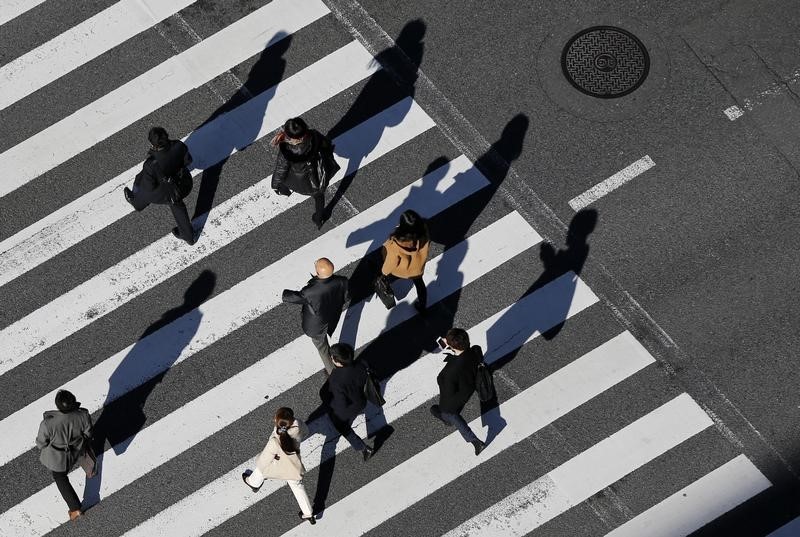By Masayuki Kitano
SINGAPORE (Reuters) - Japan could see some "concrete movement" in its real economy in 2015, an economic adviser to Japanese Prime Minister Shinzo Abe said on Thursday, adding that inflation expectations have been rising under the Bank of Japan's monetary stimulus.
The Japanese economy will show a powerful upward trend this year, said Etsuro Honda, a University of Shizuoka professor and a prominent outside architect of Abe's reflationary policies.
The real GDP growth rate was likely to turn positive sometime in the first half of this year, he said.
"I'm sure that the two percent inflation targetting policy will be realised sometime early 2016," Honda said, referring to the Bank of Japan's inflation goal.
The world's third-largest economy slipped into recession in the third quarter and is only barely emerging from the doldrums as a hit from a sales tax hike in April begins to ease.
Expected real interest rates, or nominal interest rates minus the expected inflation rate, have already dramatically become negative as the BOJ's quantitative easing has depressed nominal interests rates while raising inflation expectations, Honda said.
"In this context, people are more likely to invest their assets in stocks or assets denominated in foreign currencies."
"In addition, it is expected as well that the significant internal reserves of the Japanese enterprises will begin to be mobilised and to be allocated to investments or increase in wages," he said.
Asked about the impact from sliding oil prices, Honda said that they would likely benefit Japan over the longer term, acting as a tailwind for the economy.
"We are importing a lot of natural gas and oil from the Middle East, so since we will be benefitting from lower oil prices, the Japanese real income will be increased," Honda added.
Honda was speaking at a seminar held in Singapore by the Japan External Trade Organization (JETRO) and the Japanese Embassy, titled "Abenomics: Its Focus and Further Challenges".
His remarks came after the Bank of Japan on Wednesday kept monetary policy steady by maintaining its pledge to increase base money at an annual pace of 80 trillion yen (447 billion pounds) by buying government bonds and other securities.

The BOJ also sharply cut its inflation forecast and the central bank governor conceded it may take longer than expected to hit its 2 percent inflation goal, underlining the challenges of meeting the target as oil prices continue to slump.